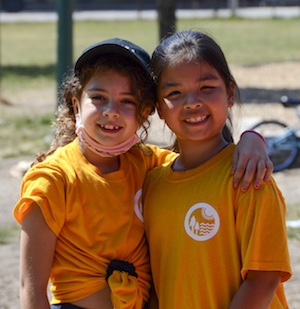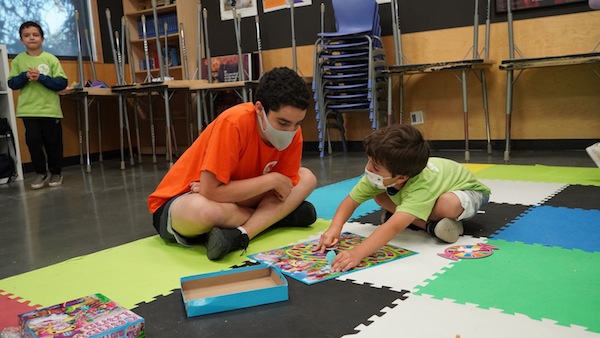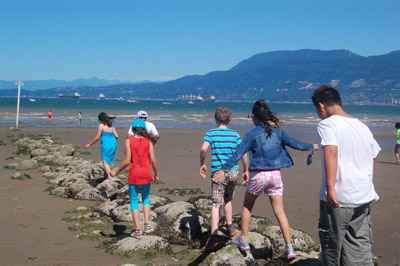In these uncertain times, JCC Camp Shalom set out to continue to be a constant source of fun and a safe environment for the whole community. For the second year, the exceptional circumstances of the COVID-19 pandemic demanded that the camp’s plans be reevaluated and adapted, as it partnered with King David High School to move the majority of its operations to the school’s building for last summer.
Camp Shalom is an inclusive Jewish day camp serving children, youth and teens from ages 3 to 18 years old, year-round, during school breaks and professional development days. Since the inception of the Inclusive Summer Camp Experience program in 2009, more and more children with diverse needs have attended Camp Shalom and participated in group activities, including overnight camping trips.
The number of children with diverse needs who attend Camp Shalom has grown from a handful to more than a dozen per summer – and the range of assistance provided for families has grown as well. Families are able to access more camp sessions and the camp can now support a wider range of ages and needs. Huge improvements have been made in accommodating campers in a true inclusion model and in providing opportunities for more Jewish programming beyond the summer, including Sunday Hebrew schools for those who did not have access to them prior to their experience with Camp Shalom.

Thanks to the contributions of the Diamond Foundation and the Snider Foundation, Camp Shalom is able to support more campers and staff with diverse needs by providing special training sessions, mentorship programs and one-on-one support for those campers who need it. Campers who were part of the first inclusive camp experiences are now teenagers and young adults who are still connected to Camp Shalom, and some are now camp staff. This past year’s biggest achievements included engaging about two dozen children, youth and teens with diverse needs and successfully integrating them into the general camp program alongside 120 to 150 other campers in the camp’s preschool, school-age and teen programs.
JCC Camp Shalom likes to think of all youth as being in transition. It pays special attention to campers transitioning from childhood into teenagehood and those teens who are about to become counselors. Work experience is a huge milestone as they enter high school. At camp, they go from being campers to participating in the teen programs, to joining the staff team.
Regardless of their developmental stage and/or maturity level, and taking into consideration their diverse needs, these teens need more support and adaptations than any other group with which the camp works. Careful planning and consideration of their needs has resulted in a successful program that provides them with social and organizational education that will benefit them in the future, as they look for employment, as well as in other areas of their lives.
JCC Camp Shalom is the largest summer Jewish day camp for youth in Vancouver, but its responsibility continues, as the engagement with youth extends beyond summer camp to throughout the year. As teens develop, Camp Shalom recognizes their need for adults with whom they can connect, that they can trust and who can be positive role models. Staff from the summer teen camp programs are educated and qualified to sustain positive and appropriate relationships with youth as they age. The inclusion model of camp programming allows campers with diverse needs to have an unforgettable Jewish experience at Camp Shalom.
For more information about the Inclusive Summer Camp Experience or Camp Shalom’s teen programs, contact Ben Horev, camp director, at 604-813-4236 or [email protected].
– Courtesy JCC Camp Shalom



